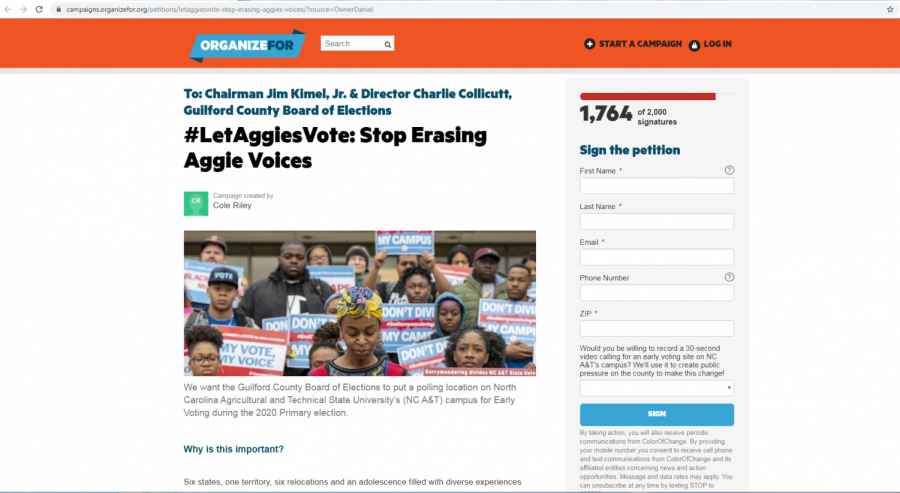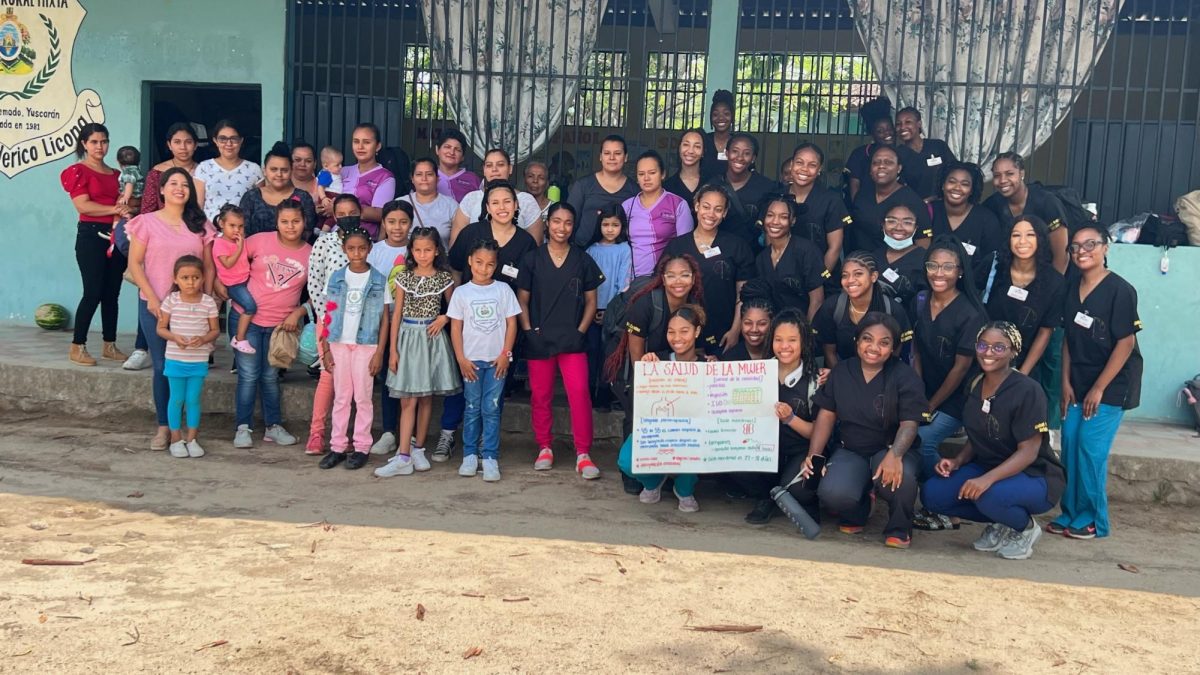There is a new movement on N.C. A&T’s campus, and this time the Aggies are taking the fight to both city council and social media.
N.C. A&T is the largest HBCU in the nation in terms of student population with over 12,000 students enrolled and is known to be divided into two separate congressional districts.
At this time the 2020 primary election is set to be held during N.C. A&T’s spring break.
The mounting obstacles affecting students’ ability to vote moved Cole Riley, a sophomore political science student and member of the Student Government Association’s Political Action Committee, to create an online petition calling for the addition of an early voting site on campus.
The petition, which requires almost 500 more signatures to reach its goal of 2,000, has circulated Twitter and Instagram partly due to the creation of the “#LetAggiesVote” campaign.
However, Riley is wary of calling it a movement.
“I feel like letting Aggies vote should be the bare minimum,” Riley said. “That’s just how America is supposed to work. A movement asking us to vote…we shouldn’t need a movement in the first place.”
A distinct feature of any movement is the threat of an entity working to undo its progress. In this case, the late Thomas Hofeller, who was a G.O.P strategist and father of the modern gerrymander, caused the need for push back.
David Daley of The New Yorker broke the story of Hofeller using race data to determine how he drew political maps.
An investigation into Hofeller’s hard drive revealed thousands of records that “detailed the racial makeup, voting patterns and residence halls of more than a thousand N.C. A&T students,” according to Daley.
Hofeller also tracked data linking the racial makeup of college students throughout the state with driver’s license data to determine if students had an accepted form of ID to vote.
This, along with his role in Donald Trump’s push to include a citizenship question to the 2020 census, explicitly discouraged student, minority and undocumented voters from participating in the democratic process.
After the U.S. Supreme Court ruled the issue of partisan gerrymandering must be left to state legislatures, a NC trial court determined the current maps are racial gerrymanders that give advantage to state Republicans.
This ruling could potentially change the way maps are drawn for the next redistricting cycle in 2021 by putting a focus on transparency.
This could be the first time the public could be front-and-center for an otherwise sacred process, according to the News & Observer. After judges have evaluated the new maps for fairness and partisanship, the approved editions can be viewed online at www.ncleg.gov.
As these rulings have signaled a shift away from a free democratic process for N.C. A&T students, Aggies have taken matters into their own hands.
On Oct. 1, a group of students went to the Guilford County Board of Elections meeting to express concerns relating to an early voting poll on campus.
Student mobilization is meant to pressure lawmakers to act in the public’s best interest. N.C. A&T students are organizing and taking on the task of encouraging young people to vote.
“[Voting is] something we need to do,” Riley said. “I know everyone brings up that our ancestors died for it but think about our kids. Our ancestors made it better for us to vote so let’s make it easier for our kids to vote.”







